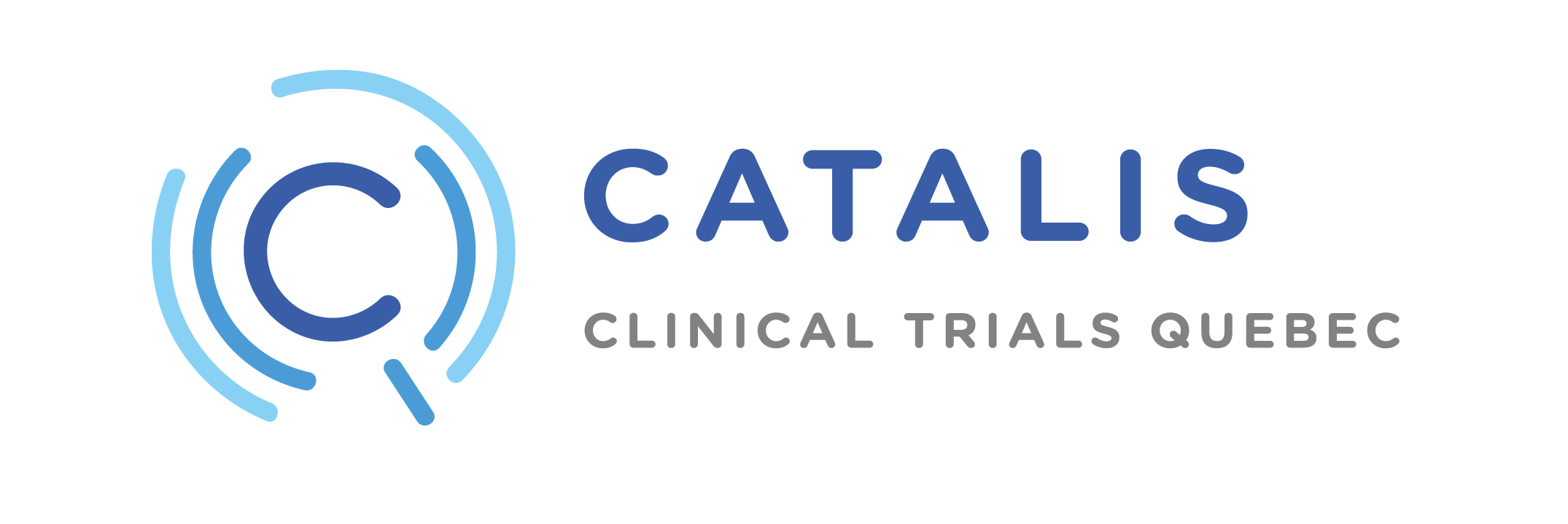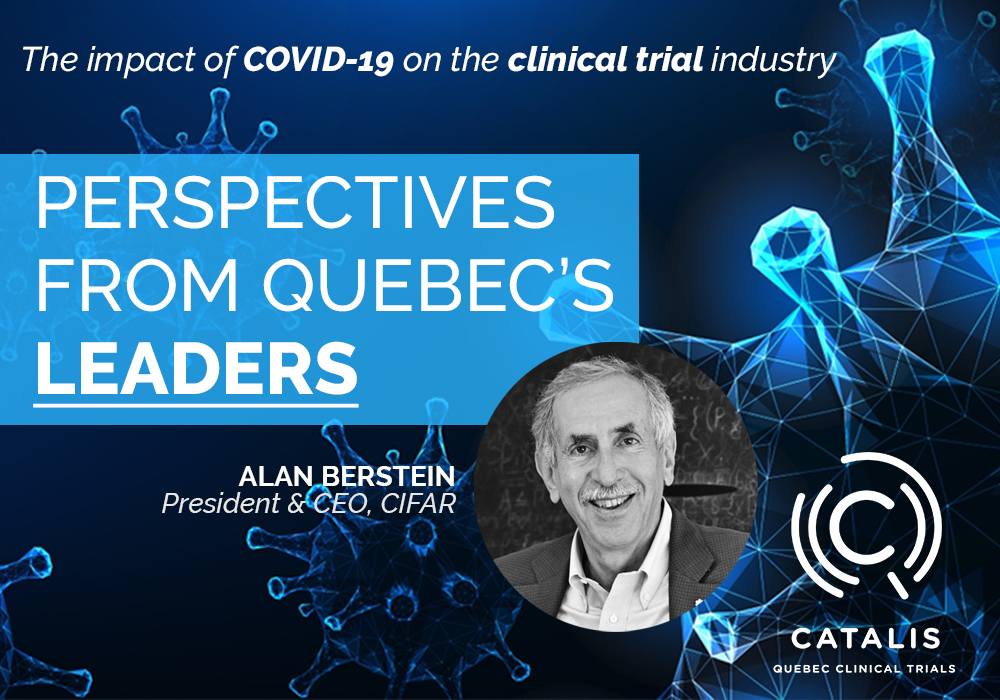COVID-19 and clinical trials : point of view of Alan Bernstein
In light of the exceptional situation surrounding COVID-19, CATALIS interviewed clinical research leaders in Quebec to find out their perspectives on the crisis and to look for ways to adapt. The following statements detail the point of view of Alan Bernstein, President and CEO, CIFAR.
Q. How do you think the COVID-19 pandemic will alter current and future clinical research, both internationally and here in Quebec?
At CIFAR, our goal is to bring together scientists from all over the world to concentrate on questions of importance to science and the world, including all aspects of the COVID-19 pandemic.
Recruiting patients takes time, and being limited to one hospital or province is not fast enough to meet pressing needs. We need to join the global effort to speed up research, stay updated on new ways of conducting studies, find out if what we are doing is worthwhile, and engage in a broad conversation.
“A pandemic is like a house fire. You have to act quickly and decisively and hope that our neighbours and the fire department will all work together to put out the fire. Here, our neighbours are the world community and the fire department is the global scientific and biopharma community.”
It isn’t surprising that pharmaceutical companies and all research stakeholders are currently focusing on COVID-19. If a vaccine is developed quickly, we can return to working on all the other health problems and serious illnesses that are still with us.
Adaptation is the key to overcoming the crisis.
Humans evolve and adapt. We are neither the fastest nor the strongest species, but we are the most adaptable. Our greatest strength is our brain, and we must use our intellect to the fullest. Science is quite simply the most powerful way that humanity has come up with to understand the world around us. At no time is that more evident than during a pandemic.
“How well we respond to change is pivotal. We must adapt: our survival depends on how we react.”
Some citizens reject imposed measures such as quarantines because they force them out of their comfort zone. Because we are a social species, some refuse to adapt. The crisis is testing businesses’ and organizations’ resilience and creativity. They must make adjustments to be able to carry out their core mission and activities.
“Researchers should be considering ways to adapt their research so they can participate in the collective effort.”
For example, Dr. Arturo Casadevall, professor at Johns Hopkins University and an advisor to CIFAR’s program on the Fungal Kingdom, has pivoted his research on fungal infections to focus on plasma transfusion for passive immunization in indiviudals at high risk of COVID-19 infection. I think the world’s scientific community, whether they are working in biomedical research, AI, physics or history have thrown themselves into helping to solve the COVID-19 pandemic through research and the talent they bring to the problem.
The crisis will be resolved through science.
The pandemic is an opportunity for the scientific community to give back, after years of receiving financing from the public. Researchers are eagerly finding ways to contribute to ending this pandemic. Serological screening, PCR tests, social distancing, and drug development are all based on prior scientific discoveries.
Clinical researchers are currently conducting numerous trials around the world to develop new drug therapies, develop safe and effective vaccines and study the impact of the pandemic on our wellbeing and on the economy.
“This is the time to showcase the value of research.”
The scientific community has never had a more important opportunity to demonstrate the value of research.
Developing the vaccine is likely the only way to end this pandemic. To reach that goal, scientists, clinicians, vaccine manufacturers, regulators, and funders need to work closely together to put in place the global infrastructure required to develop, test, manufacture and disseminate safe and effective vaccines for the entire planet.
Our scientific knowledge underpinning viral pandemics has undergone a complete revolution. From Pasteur’s discovery of the germ theory of disease to the sophisticated science behind today’s approaches to vaccine development, to rational drug design and the application of artificial intelligence to drug discovery, science today is providing humanity with incredibly powerful tools to stop COVID-19.
Coming back to the analogy of a house fire: we don’t know when or where the next house fire will break out. All we know is that there will be a next house fire. For that reason, society is willing to train and pay a cadre of firefighters even when there is no fire because we know that inevitably there will be another house fire. The same is true for fundamental scientific research.

